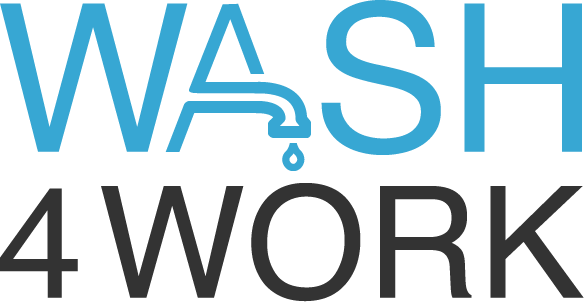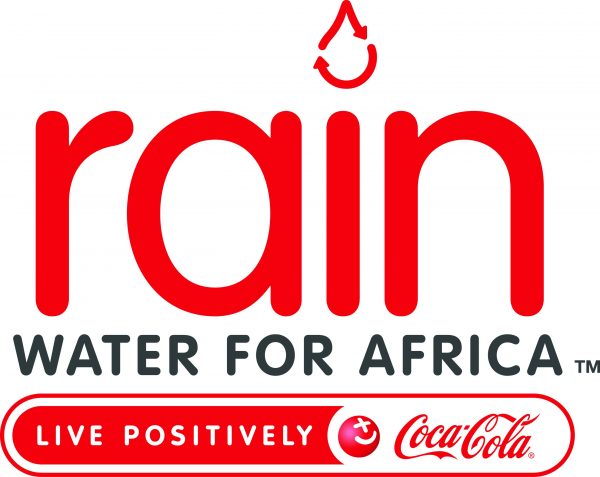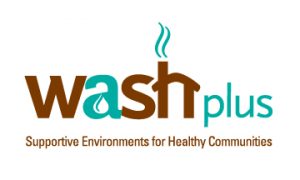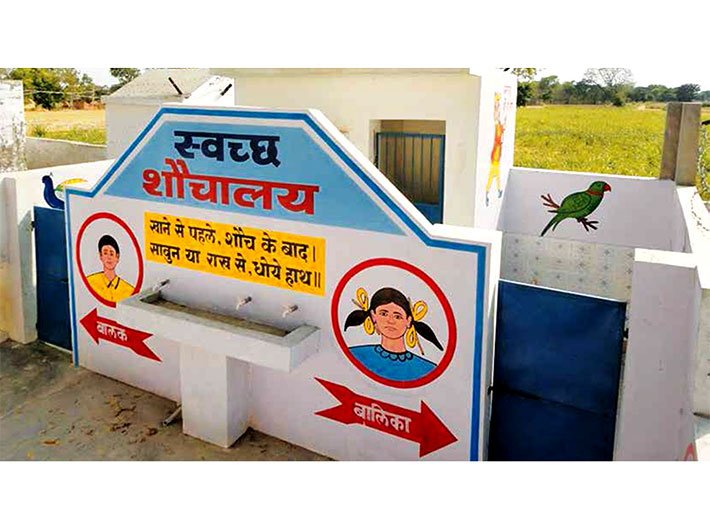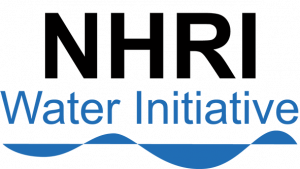Overview
The Coca-Cola Company (TCCC) strategic water stewardship framework focuses on plant performance, watershed protection, sustainable communities, and raising global awareness and action around water challenges. Replenish is an integral part of TCCC water stewardship strategy, which covers three areas: Reduce, Recycle, and Replenish.
TCCC intends to meet and maintain their goal of replenishing all of the water that they use in their beverages by 2020.
TCCC respects the human need for safe drinking water and the need to protect both ecosystems and communities through proper sanitation.
The Replenish Africa Initiative (RAIN) is a groundbreaking clean water movement spearheaded by The Coca-Cola Africa Foundation (TCCAF). The program’s objectives focus on making a strong, lasting community impact while supporting TCCC’s water stewardship goals and helping Africa meet the SDG on water and sanitation.
The program seeks to contribute to The Coca-Cola Company‘s water stewardship goal Replenish, or returning the amount of water used in Coca-Cola‘s finished products to people and nature, by providing clean drinking water to at least 2 million people through an estimated 100 projects in nearly every African country.
RAIN is backed by a six-year, $30 million dollar commitment by TCCC and made possible through the support of more than 140 partners who provide development expertise and additional resources required to implement the projects sustainably. Since its launch in 2009, RAIN has reached more than 1 million people with sustainable clean water access.
The Coca-Cola Africa Foundation’s flagship program looks to make a positive difference in 35 of 55 African countries by building sustainable communities, catalyzing investment in clean water access, improving water and sanitation access for school children, replenishing more than 2 billion liters of water annually back to communities and nature, and empowering women through clean water access and entrepreneurship.
The Coca-Cola Africa Foundation has pledged an additional US$35 million (Sh3 billion) to support Pan-African safe water access programs that will bring the total number of RAIN beneficiaries to six million. By 2020, the total investment will be US$65 million (Sh6.5 billion).
In addition to the safe water access goals for 2020, RAIN partners aim to economically empower up to 250,000 women and youth; promote health and hygiene in thousands of communities, schools, and health centers; and replenish up to 18.5 billion litres of water to nature and communities every year.
RAIN improves access to water and sanitation and promotes improved hygiene behaviors for positive impacts on health and development. Approximately 80 percent of RAIN projects have WASH components.
See below for details on five representative RAIN programs implemented in different locations:
In South Africa, RAIN is collaborating with the South African Department of Basic Education and H2O for Life, a U.S.-based non-profit, to provide clean drinking water, sanitation facilities, and hygiene education to 100 schools serving an estimated 60,000 students throughout the country. This program, RAIN Water for Schools, additionally seeks to develop a sustainable model for operations & maintenance of infrastructure that the national government can expand based on the learning from this program.
In Beni Suef, Egypt, RAIN is working with CARE Egypt to increase access to safe drinking water for impoverished households, build the capacities of community development associations and promote hygiene and environmental awareness in schools and households.
Safe Water for Africa is an innovative partnership of The Coca-Cola Africa Foundation (TCCAF), Diageo plc, WaterHealth International (WHI), and the International Finance Corporation (IFC) to provide access to sustainable safe drinking water in Africa.
In Swaziland, RAIN increases access to sustainable safe water supply in community-based health clinics, schools, and orphan care centers in rural areas; creates garden projects and income generation activities for HIV/AIDS support groups; promotes behavior change and the use of chlorine dispensers; and strengthens governance of water resources. The project will supply water to 250,000 people.
In Kampala, Uganda, RAIN expands community access to safe and affordable water services for 15,000 people living in urban informal settlements. The program seeks to promote hygiene and effective solid waste management at the community level while building the institutional capacity of local water agencies to improve service delivery for the poor.
In September 2013, at World Water Week in Stockholm, WSUP announced a partnership with The Coca-Cola Company (TCCC) which aimed to support programs in Kenya, Zambia, Madagascar, and Mozambique, through the Replenish Africa Initiative. The aim is to support sustainable solutions to clean water and sanitation service delivery for at least 270,000 people in urban and peri-urban areas. The expected activities of this partnership included the development of water kiosks and storage tanks for local communities, sustainable water supply services and capacity building of local service providers.
Below we have summarized the planned activities and expected outcomes from this partnership (RAIN-WSUP):
KENYA: At least 45,000 people will benefit from the RAIN-WSUP intervention in the Kiu, Mirera, Karagita, Kamere, Kwa Muhia and Kasarani peri-urban settlements of Naivasha Municipality, next to the internationally renowned Lake Naivasha in the Rift Valley Province. The effort will establish water treatment, storage and distribution networks to provide safe water to local communities affected by dental and skeletal fluorosis, due to the high levels of fluoride in the underground water. Water kiosks and storage tanks will be constructed with a fluoride filtration system. The project will also rehabilitate boreholes, expanding access to clean and affordable water to low-income inhabitants. Sanitation improvement activities will include the rehabilitation of yard latrine units, the development and implementation of a sanitation marketing strategy, and the training of artisans and community based enterprises in production of sanitation products. Local women will take an active role in the project through leadership roles and potential employment in local water and sanitation enterprises.
ZAMBIA: The RAIN-WSUP project will provide equitable and safe water access to the 63,000 people of Chainda and Bauleni, low income peri-urban communities near Lusaka. The project will support the development of a sustainable water supply service delivery model by Lusaka Water and Sewerage Company (LWSC), the municipal service provider. Activities will include the improvement of the existing water system, the training of LWSC staff and communities in the use of newly introduced innovative pre-paid water dispensers, the mobilization and engagement of the communities, improved sanitation facilities and the establishment of new delegated management structures. In addition, this project will promote women’s empowerment by employing women as water vendors.
WSUP and USAID are leveraging TCCAF funds to provide sustainable safe water access to more than 40,000 people through community water kiosks and a distribution network as well as to provide sanitation facilities and hygiene education in schools in peri-urban Lusaka, benefiting up to 50,000 people. MCC’s broader investments in water, sanitation and drainage in Lusaka are expected to improve the health and economic productivity of more than 1.2 million of the city’s residents.
MADAGASCAR: The RAIN-WSUP project will expand service for low income peri-urban communities of Antananarivo by building the capacity of Jiro sy Rano Malagasy (JIRAMA), the local service provider, to support their delivery of water and sanitation services sustainably on a city-wide scale. Specific activities include the construction of 73 water kiosks and eight laundry blocks in the city’s seven Communes, the training of the community in facility management, and the capacity building of JIRAMA’s staff in Non-Revenue Water (NRW) prevention. The project will benefit 142,000 people and contribute to improvements in health, livelihoods, gender equality and reduced poverty. Women in the community will be encouraged to take on leadership roles throughout the development of the project and have the opportunity to generate income through the newly-built laundry blocks.
MOZAMBIQUE: The RAIN-WSUP project will scale activities to provide safe and sustainable drinking water to target peri-urban communities of Maputo and build the capacity of Águas da Região de Maputo (AdeM), the water utility. Sanitation interventions will include the development of communal and shared sanitation facilities, the improvement of sanitation in schools and the implementation of drainage improvements to realize the full health impacts of better water and sanitation. An estimated 28,250 people will benefit from the RAIN-WSUP project. Women will be included in all phases of the project and opportunities for women’s employment in water stand-post operations will be provided.
In April 2015 RAIN and its partners announced programs that will protect watersheds, provide sustainable clean water access and create new opportunities for women and youth entrepreneurs in Africa by the end of 2020.
In Kenya, Madagascar, and Mozambique, Water & Sanitation for the Urban Poor (WSUP) will leverage RAIN funding to contribute to city-wide access to improved water services and associated reductions in water and hygiene related diseases in selected cities, benefitting up to 2 million people by 2018.
Country(ies) where the intervention is taking place
37 African countries (e.g. Ghana, Kenya, Zambia, Madagascar, Mozambique, Uganda, Swaziland, Egypt, South Africa and others) .
Lead Organization
The Coca-Cola Africa Foundation (also known as TCCAF).
Who is involved?
The Replenish Africa Initiative also involved collaboration with partners including the Global Environment and Technology Foundation (GETF), the United States Agency for International Development (USAid), Water and Sanitation for the Urban Poor (WSUP), the Millennium Challenge Corporation (MCC), WaterAid, Water for People and many others. Together, these partners have empowered 2,000 communities and schools making RAIN the leading Pan-Africa safe water program that has the support of governments, communities and partners in 37 of the 55 African countries.
Objectives
RAIN aims to provide 6 million people in Africa with access to safe water by the end of 2020.
WSUP is a RAIN partner, implementing projects in Kenya, Madagascar, Mozambique, Uganda and Zambia to improve the lives of hundreds of thousands of individuals and provide communities with clean water and sanitation services.
Which elements of WASH are covered?
Water and sanitation and hygiene behaviors.
Which elements of the Framework for Business Action on WASH are covered?
Engage with stakeholders, Taking Action, Collective Action.
Methodology and tools that have been developed or planned
Total Impact Measurement and Management WSUP is piloting PwC’s “Total Impact Measurement and Management” framework aiming to generate a wide assessment of the net societal benefits of WSUP’s work. The pilot is looking at a subset of impact pathways within WSUP’s Madagascar programme: depending on the outcomes of this pilot study, we will consider incorporating TIMM or a similar approach into our routine programme-wide evaluation processes. Results of this pilot, including estimates of net monetised benefits in each impact area, and an assessment of the wider value of this approach for WASH impact mapping, will be published over coming months.
Indicators/metrics that have been developed to track progress
Piloting PwC’s “Total Impact Measurement and Management” framework aiming to generate a wide assessment of the net societal benefits of WSUP’s work.
In Uganda: Baseline of human development indicators to be used to track outcomes of interventions and tracked over the course of implementation. Access to safe water and sanitation will improve the quality of life of 15,000 the residents through reduction in morbidity and mortality resulting from WASH related diseases. As a result of the good health, there will be an improvement in the socio-economic status of the community, boosting household incomes, higher school enrolment of children, as well as gender empowerment through the community mobilization efforts. Baseline of disease prevalence/disease burden and other HDI indicators will be taken and monitored through the project time frames.
The project is expected to strengthen the NWSC (National Water and sewage corporation) pro-poor institutional and policy framework, as well as the collaborative mechanisms with KCC, the communities and the private sector.
The Kampala Sanitation Programme – a US$50 million African Development Bank funded programme extending the city sewer network – for Bwaise II to be reached with mains sewerage. If these plans come to fruition, the improved water supply to the Bwaise II community will enable effective use and performance of the system.
Increase the consumer base of NWSC and ultimately the revenue collected as formal connections increase and illegal connections and water losses decrease.
Government partners and/or the local policy environment
In South Africa – working with Department of Education.
In Uganda – Program looks to strengthen the pro-poor policy framework.
Outcomes, successes and ongoing challenges
In Somaliland, RAIN helped bring safe water access to 224,000 displaced people. In schools across the continent, over 217,000 students have received safe water access and sanitation, creating healthier learning environments.
RAIN achieved its goal of improving sustainable access to safe water for more than 2 million people by end of 2015 in more than 1,800 communities. RAIN and its more than 140 partners aim to provide the same benefit to another 4 million people by 2020.
RAIN also is providing safe water access, sanitation and hygiene in schools for more than 300,000 children to improve their education environments, and is providing sanitation, often first time access, to more than 350,000 people in 37 countries.
In Kenya, RAIN worked with WSUP to strengthen water utility services, providing increased sustainable water access and job opportunities in the community for nearly 50,000 people.
Future goals
In addition to the safe water access goals for 2020, RAIN partners aim to economically empower up to 250,000 women and youth; promote health and hygiene in thousands of communities, schools, and health centers; and replenish up to 18.5 billion litres of water to nature and communities every year.
Links to learn more
http://www.coca-colacompany.com/rain-the-replenish-africa-initiative
http://www.globalwaterchallenge.org/
http://www.getf.org/our-projects-partnerships/rain/
http://www.wsup.com/2016/03/21/water-sanitation-investments-create-jobs/
http://www.wsup.com/2013/09/04/new-partnership-with-the-coca-cola-company-tccc-announced/
http://www.coca-colacompany.com/rain-the-replenish-africa-initiative
http://www.coca-colacompany.com/stories/about-water-stewardship
http://www.coca-colacompany.com/stories/rain-the-replenish-africa-initiative
Contact
Greg Koch (Global Water Stewardship Director).
Cameron Dobbie (EA to Chief Executive, Neil Jeffery – WSUP) or Neil Jeffery (Chief Executive Officer at WSUP)
